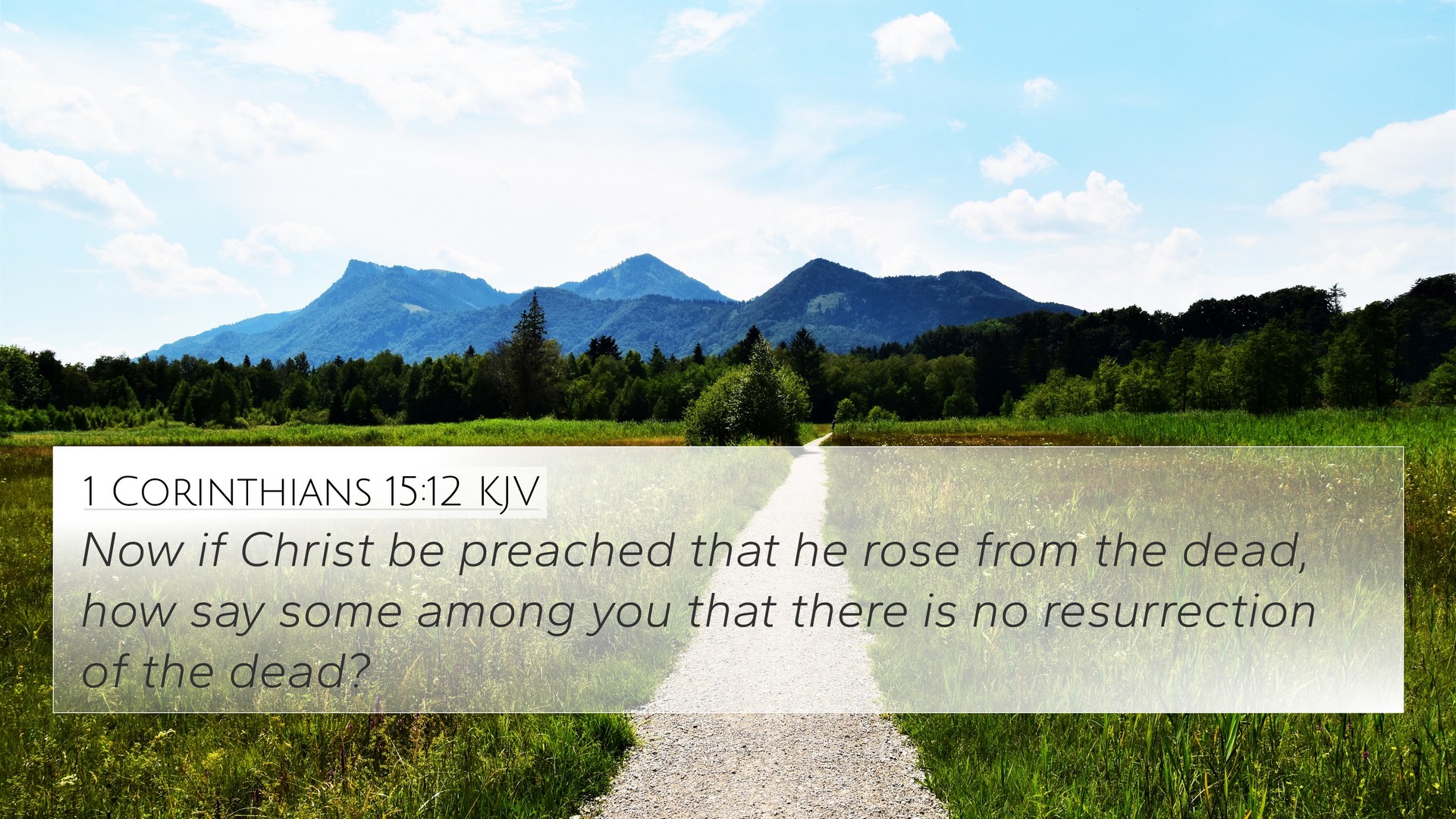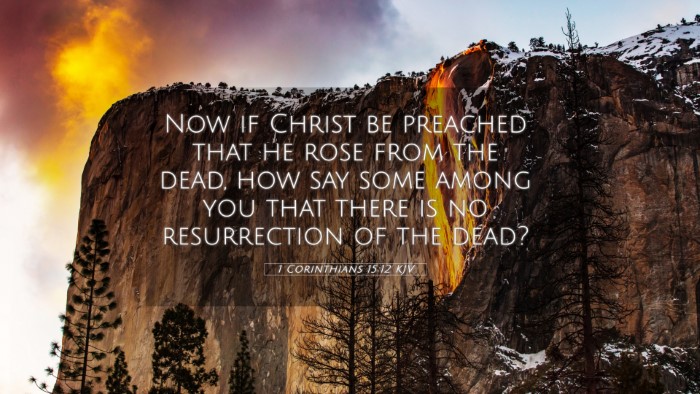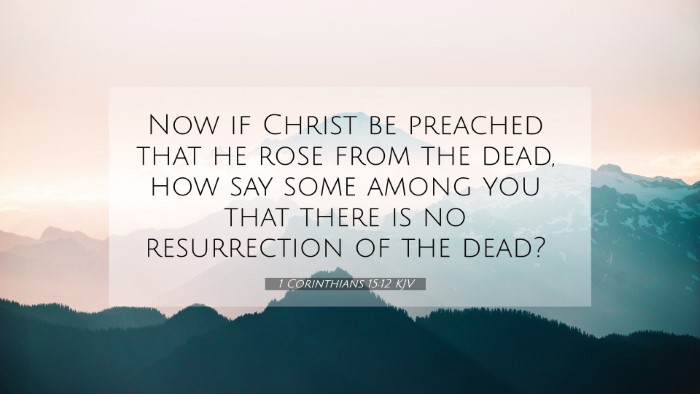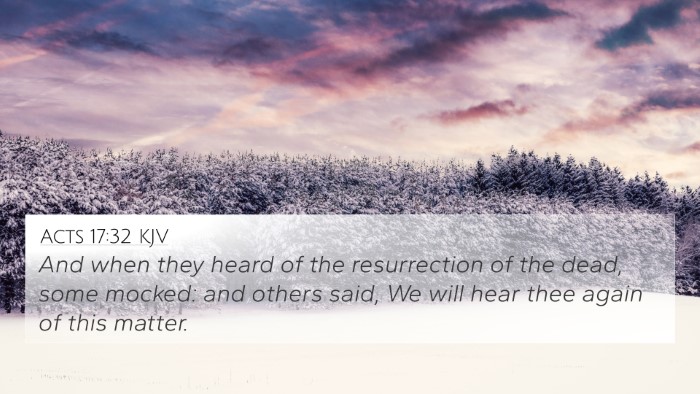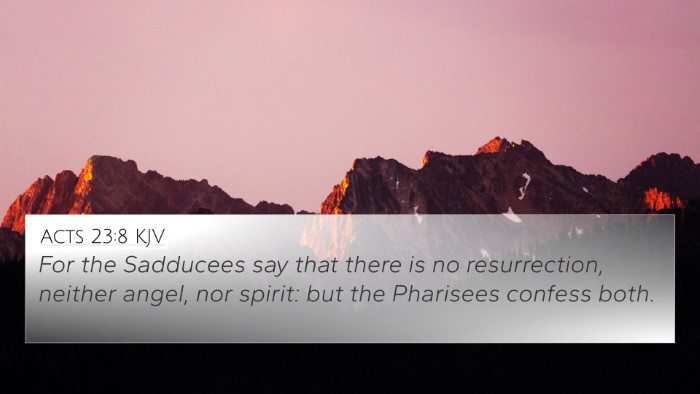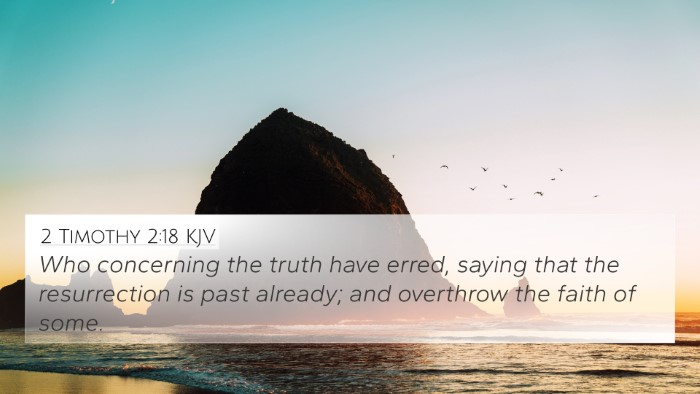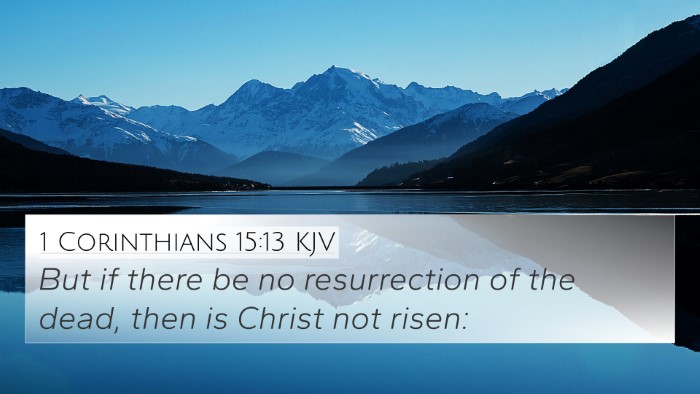Understanding 1 Corinthians 15:12
Verse: 1 Corinthians 15:12 - "Now if Christ is proclaimed as raised from the dead, how can some of you say that there is no resurrection of the dead?"
Summary of Meaning
This verse serves as a critical inquiry into the core Christian belief in the resurrection. The Apostle Paul confronts the troubling notion among some members of the Corinthian church who deny the resurrection of the dead, despite the proclaimed resurrection of Jesus Christ. This creates a paradox that Paul seeks to address, emphasizing that the resurrection of Christ is foundational to the Christian faith.
Insights from Matthew Henry
Matthew Henry comments on the logical implications of the resurrection. He notes that if Christ is indeed risen, then the denial of such a resurrection undermines the very basis of Christian doctrine. Henry underscores the interconnectedness of belief in the resurrection with the hope of eternal life. Without the resurrection, the Christian faith would collapse, and believers would be left in a state of despair.
Insights from Albert Barnes
Albert Barnes elaborates on the theological significance of the resurrection. He argues that the resurrection is vital not only for Christ but also for all believers, as it assures them of their own resurrection. Barnes emphasizes the importance of the resurrection as a cornerstone in the argument Paul is making: if there is no resurrection, then the proclamations about Christ's resurrection become meaningless.
Insights from Adam Clarke
Adam Clarke provides a historical context to this verse, noting that the resurrection was a central tenet that differentiated Christians from other faiths. He remarks on the skepticism that existed in Corinth and explains that Paul's assertion serves to clarify and reinforce the conviction that the resurrection is essential to the faith. Clarke connects this with other passages that speak of resurrection and eternal life.
Bible Cross-References
- Romans 6:5: "For if we have been united with him in a death like his, we will certainly also be united with him in a resurrection like his."
- 1 Thessalonians 4:14: "For since we believe that Jesus died and rose again, even so, through Jesus, God will bring with him those who have fallen asleep."
- John 11:25-26: "Jesus said to her, 'I am the resurrection and the life. Whoever believes in me, though he die, yet shall he live...'
- Philippians 3:10-11: "I want to know Christ—yes, to know the power of his resurrection and participation in his sufferings, becoming like him in his death, and so, somehow, attending to the resurrection from the dead."
- Matthew 22:31-32: "And as for the resurrection of the dead, have you not read what was said to you by God: 'I am the God of Abraham, and the God of Isaac, and the God of Jacob'? He is not God of the dead, but of the living."
- Luke 20:37: "But that the dead are raised, even Moses showed, at the bush, when he calleth the Lord the God of Abraham, and the God of Isaac, and the God of Jacob."
- 1 Peter 1:3: "Blessed be the God and Father of our Lord Jesus Christ. According to his great mercy, he has caused us to be born again to a living hope through the resurrection of Jesus Christ from the dead."
Thematic Connections
The themes of resurrection and hope run throughout Scripture, establishing strong connections between the Old and New Testaments. This verse, along with its references, forms a powerful narrative on the promise of eternal life. Each cross reference contributes to a deeper understanding of resurrection theology within the Christian faith.
Exploring Inter-Biblical Dialogue
Understanding the resurrection leads to exploring more profound theological questions about life, death, and hope. As such, the exploration of how 1 Corinthians 15:12 interacts with other biblical texts encourages a more complete theological understanding.
Conclusion
1 Corinthians 15:12 not only addresses the specific denial of resurrection in Corinth but resonates with ongoing theological discussions about life after death. By connecting this verse with other scriptures, we appreciate the rich tapestry of biblical teaching concerning resurrection. Tools for Bible cross-referencing can enhance one's study and understanding of these connections, illuminating the vital theological stronghold that the resurrection is within Christian doctrine.
